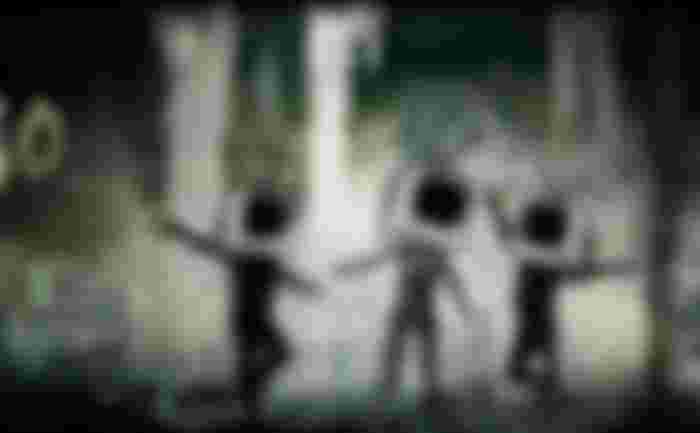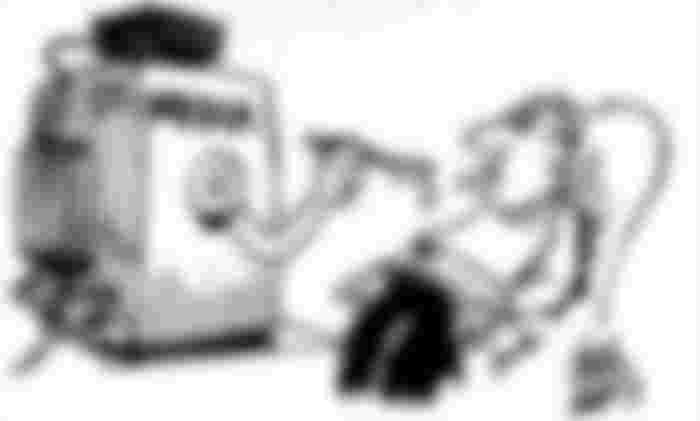Capitalism - commercialization, politicization and technicalization of culture
In a relatively short time, a little over a century ago, when capitalist social relations were established, they spread to a good part of the world. Shortly before, and especially after the fall of the last opponent - communism, capitalism began to develop and spread unstoppably, recommending itself, and often imposing itself on every form of society and its organization. Thus, capitalism was given the epithet - neoliberal, although in its essence it remained the same as the old one and became only seemingly liberal. The birthplace of capitalism is, you guessed it, Western Europe, to which the very imposition of neoliberal capitalism, as a very real and tangible creator and judge of every social and thus cultural order, enables the simultaneous placement of its own cultural principle of life, which would not be possible without capitalism. The expansion of capitalism and westernization (which refers not only to the European but also to the even more "western" - the American West), again, was made possible by globalization (or did they make it possible? - either way, the fact is that these three phenomena are interdependent and that in that triangle every member is necessary, and none in itself is sufficient for complete domination over the remaining societies and cultures of the world. As the driving force of the capitalist system is money, its influence on every culture is basically based on the fact that value, as a universal feature and goal of culture, gives way to price, which is only a way to reach a new goal - earnings. Such drastic change has a very significant impact on the understanding of contemporary culture, which is almost always in exclusive connection with the above-mentioned social phenomena. In particular, this means that it no longer matters whether any cultural heritage - moral code, tradition, work of art, scientific patent, thought and everything else that falls under culture, is valid in itself, but their value is conditioned by the answers to the two questions that most often decide their future destiny - are they and if so, how cost-effective are they? Why "spend" a gift for writing on some, presumably, artistically valuable work that may only be published from the tenth attempt and from which a larger circulation will have a weekly catalog from a nearby supermarket, when it can be used and, more importantly, paid off in marketing, advertising and copywriting… Why play in a play of ancient tragedy that will be watched by 400 people in one night, if it is possible to host a fun-humorous show program that will be watched by 400,000 viewers in the same time interval… Why the titles about functional illiteracy of children from school desks, when newspapers best sell explicit photos from "stolen" phones of pop "artists"… Why work, think and after all - be, something that is not financially viable when it turned out that it no longer matters whether work and thought ennoble a person but to whether he is paid and how much he is paid. This problem that every culture faces in the capitalist social, economic and value system is called commercialization. Every such, capitalist, system, in every state, must have its own political frameworks that enforce it and often legitimize it - in that way it exercises complete power over all factors, creators and consumers of culture. The politicization of culture is best reflected in intolerance, condemnation and prohibition of any opinion that is not in line with the dogmas of the current political set, and which, in turn, are directed by neoliberal centers, organizations and authorities.

When we remember that culture could not exist without thoughts and opinions, it becomes clear to us how limited it is at this age. It became possible only when it was in the service of the ruling propaganda, while in any other case it was marginalized, restrained and ridiculed. While in commercialization the value of culture directly depends on profitability, in politicization it directly depends on suitability - if it is in accordance with the goals of government representatives, it becomes possible, protected and placed, while otherwise these honors are very difficult to achieve. There must be a third point in every triangle, so that it can be called that at all - and since the triangular composition of social phenomena is more stable than the linear one, it is natural that there is a third phenomenon - technization. Like commercialization and politicization, technization would not be possible without a global view and a capitalist framework of reality. There has already been talk of the so-called an information revolution that was so successful that it left behind a once unimaginable and incredible legacy - a new, virtual, world facing our old and real. This would mean that culture must find a way to penetrate this new world if it wants to exist in it, and thus in the personal worlds of millions of people - because it, in its traditional form, will not exist in it until it is found. on a network that, as we shall see, is neither suitable nor overly hospitable for the vast amount, above all, of knowledge that every culture inevitably contains. If we deal with the root of the word "informatics", we would very quickly find a similarity with the root of the word "information", and this is certainly not a coincidence, since information is the basic unit of informatics whose only role is to store, manage and share propellants. The media, which in modern times are based on the achievements of informatics, inform us every day - they fill us with an abundance of various information, each of which we will notice with our senses, and keep some in our memory, and we will do all that to be "up to date". . instant time. This trend of "bombing" and "filling" with information has led to two worrying phenomena. First, the multitude of available and aggressively placed information has caused less and less interest in its meaning and credibility, because at some point there must be oversaturation and a stage when the mind can no longer receive it, so it defends itself and its owner by creating a shield of indifference that prevents access. and the penetration of new information. Second, partially adopted available information creates an “illusion of knowledge” that is incomplete, fragile, and superficial and that as such can be very dangerous. In this way, the "knowledge" acquired through information, which is just a bunch of unrelated and somewhat adopted fragments, appears in contrast to the coherent, complete and in-depth knowledge that culture, in one sense, is. Such a thing becomes very understandable when we realize that knowledge in its traditional form cannot survive on any network whose meaning is to change it constantly and incredibly quickly, automatically. In this way, by playing with its parts, simplifying and transforming it, technization creates a substitute for culture, and thus directly endangers its survival - because why nurture and adopt it slowly, gradually and completely in its full scope, when it is now possible much faster and much easier, and in a much narrower scope? In that conflict between culture and its pale copy, it is clear that the original is endangered, which, unfortunately, does not enjoy the support and encouragement from the side because it does not serve any of the goals of those who make that side. The center of the KPT triangle (commercialization, politicization and technization) is one big K in the sign of capitalism, which, in cooperation with globalization and westernization, proves to be an equally serious part of the challenge facing our culture. So far, much more has been said about the causes, which have been clarified in the previous parts in the light of their own consequences. For a change, in the next section the light will be redirected to probably the most obvious and visible consequence.

Cultural industry and production of mass media culture and kitsch
While in the previous lines, culture was presented in its full scope and form, the specificity of the phenomenon we are now dealing with requires us to focus on one of its, often the most prominent and most frequent, segments - art. Since early civilizations, art, often equated with culture, has coexisted in its more open and closed form and environment - as folk and as elite. There is no doubt that throughout history, both of them aspired to and fulfilled their differently set and shaped goals, and they often recognized and merged in many points of their rich creations. At the beginning of the twentieth century, both folk and elite art received a serious threat - kitsch, which means a bad imitation of art, and which is one of the main features of their competitor - mass culture. When we look at the phenomena and phenomena we have already talked about, it becomes clear that mass culture is only a natural consequence of its causes - capitalism, globalization and westernization. To confirm this, we will list its three very important features, which fully reflect its causality with the mentioned phenomena. The law that mass culture obeys is the volatile law of the market. As in capitalism, like any commodity, culture and its products are produced, sold and, most importantly, consumed in bulk. Permanence, as an imperative that was once strived for, becomes unthinkable, and more importantly - unnecessary, because the hyperproduction of the new makes meaningless only the existence of the old. An important feature of mass culture is also its spread, which would be impossible in a process other than globalization. He can thank the media in his service for that, because, unlike in the past, today, they are the main means of communication that allows them to dictate and place all the trends and phenomena they want, making them available to anyone who has access to electricity. returns to technicalization. The Western value and cultural model, which holds a monopoly over the mass media, is another feature of every mass culture in essence, while what distinguishes individual (mostly national) interpretations of the same is precisely kitsch. The question is often asked what is so tempting in kitsch, that is. What allows him to "get under the skin" with so many people of completely different psychological, national and class profiles? There is no one, completely correct answer to such a question, and the reason for that lies precisely in one of the characteristics of kitsch, and at the same time, equally tempting mass culture. In order to understand the objective reasons for the success and rise of mass culture and its kitsch art over the folk and elite, it is necessary to distinguish what it "borrowed" from one and what from the other.

Democracy and almost complete openness have proven to be very useful features of almost every folk art, while the elite have a beautiful and attractive appearance, which, however, will not always be of crucial importance. What is common to the people and the elite, the irritation of the senses and the supremacy of the spirit, which every art evokes, will be taken only half, of course, in favor of the senses. It is this ability to activate the senses that will prove to be much more cost-effective than mere aesthetics, which is less and less crucial when it comes to consuming cultural products. On the other hand, "astonishment", as one of the impressions that primarily refer to the admiration for linguistic procedures in a literary work, but can also be applied to any artistic work, will give better results as time passes and the shackles of morality and shame loosen. Beauty, nowadays a boundless category, will give its pedestal of appreciation and demand to the grotesque, almost unifying feature of everything that is a product of kitsch, and thanks to the astonishment, such products will be sought after. The power of transformation, since it is not tied to anything permanently and permanently, is crucial for the rise of kitsch. What is new, and one of the secrets of the triumph of mass culture over the popular and over the elite, is the incredible simplification. Her ambitions do not refer to permanence, nor to value, nor to any spiritual interaction with her recipients - her only goal is earnings, and therefore she can afford once unimaginable qualities, which are the main reason for her popularity. In folk culture, the creator and recipient was the people; in the elite it was the elite - later those boundaries were moved, even erased, while in mass culture a new recipient stands out, and sometimes the creator - the masses. The term derived from the Greek word for dough refers to a bunch of people who, logically, have some characteristics of the dough, such as e.g. easily shaped formlessness and complete passivity. Kitsch art almost exclusively activates the instinctive part of consciousness, which gradually begins to suppress the spiritual part, whose participation in making any decision is unsolicited and undesirable. Only then can the real influence that mass culture has without any doubt emerge, because like any culture, it strives to be adopted, only that, unlike others, the content it offers is empty and bad. Entertainment, instead of a lesson, is one of the mottos that can be separated from this complex issue. In mass culture, the end result of the pursuit of global processes, the most important change in what culture is impossible without is embodied - human consciousness. Her tastes and demands are exploited in order to seemingly be satisfied, and since the satisfaction is never complete, a need arises that grows into addiction. The absence of firm and lasting support provided by the former art means that the (self) consciousness of each individual is doomed to two choices, one of which is easy and the other incomparably heavier - it can indulge in the swaying vanity of kitsch or return to staunch works of past art. . As a complete return to the past is impossible, we remain doomed to live in an unstable present and uncertain future, to whose whims, unfortunately, we are not immune. In the direct conflict between the values of culture and the worthlessness of its surrogate, it remains uncertain whether old ideals or new idols will prevail in the struggle for consciousness and soul.

Conclusion
Each of these challenges individually and together with the others signifies the coming change. Throughout its long history, culture has never remained immune to change, on the contrary, it has gone through them together with man, whether good or bad, and has become somewhat different, but stronger each time. What distinguishes this impending transformation from others is that its ambitions and appetites are much greater - it threatens to transform culture from an existing to a non-existent state, creating a world in which it is unnecessary and undesirable and having a ready replacement for it. In the time of the rule of the right to choose, he, completely paradoxically, seems to not exist. Coercion, though it may not seem so, is a relationship that describes the modern world. As much as we resist the new culture of living, it is imposed on us through every possible channel of penetration and influence. The choice certainly exists, but it refers exclusively to the individual who, still (in most societies), has the right to choose, but only for himself. And since man, above all, will be a community, it is inevitable that his personal choice will conflict and be, either mentally or physically, overpowered by the collective, which, again, does not have to be consciously made, but whatever it is, it is there. Like man, culture is as much a matter of personality as it is a matter of the collective, which means that regardless of the form that an individual nurtures in himself, he survives and transfers from the form adopted in the collective - family, community, people, nation and society. Precisely because of that, the sanctification of individuals means nothing until, as in the golden age of the Enlightenment, it spreads to the group and to the groups, and with them, to the whole society. From the point of view of the author of this text, there is no ambition to change anything in the unstoppable course of time and the path that civilization follows, but there remains, above all, the desire to, if nothing else, at least be aware of the direction we are going, because if we knew more, perhaps we could use that so hard-won right to choose. Perhaps, all together, we would choose to save our culture and thus preserve our souls, which in every opposite option would become, not victims, but (un) intentional accomplices in the intentional crime against the greatest human good.



